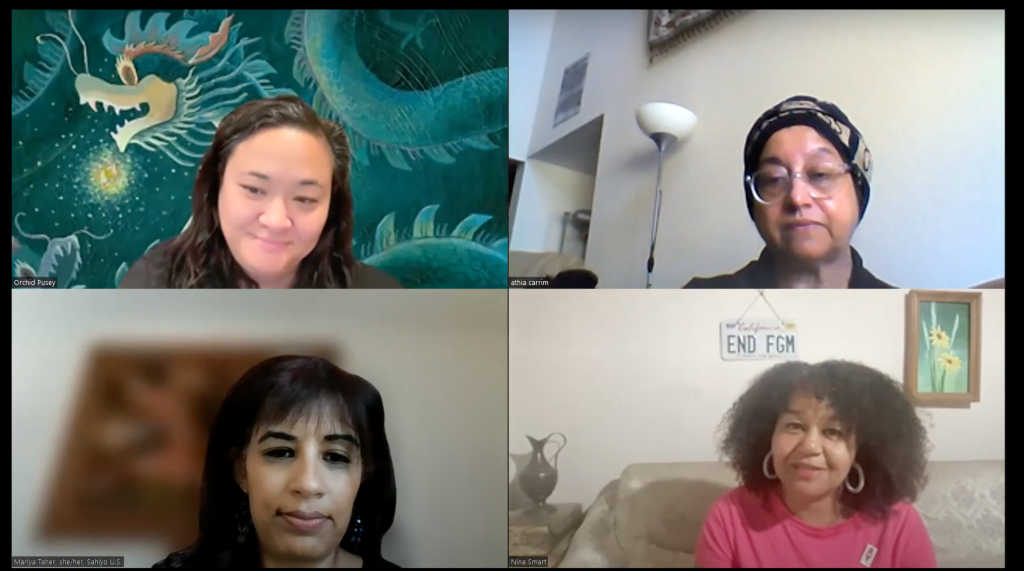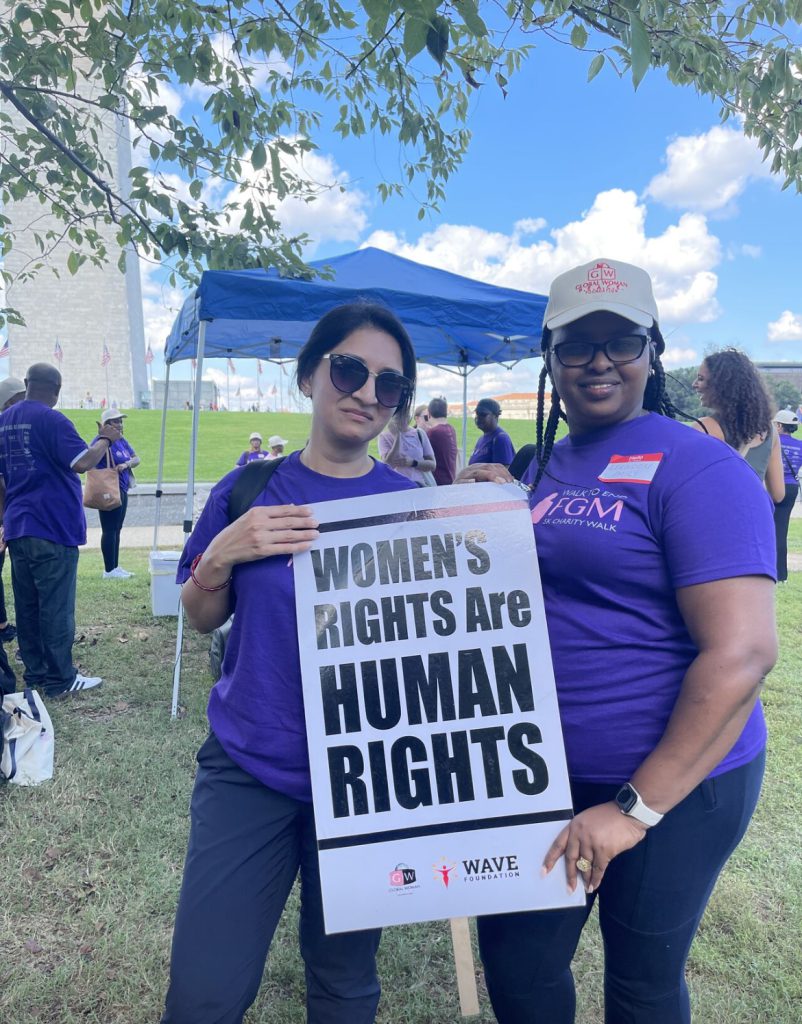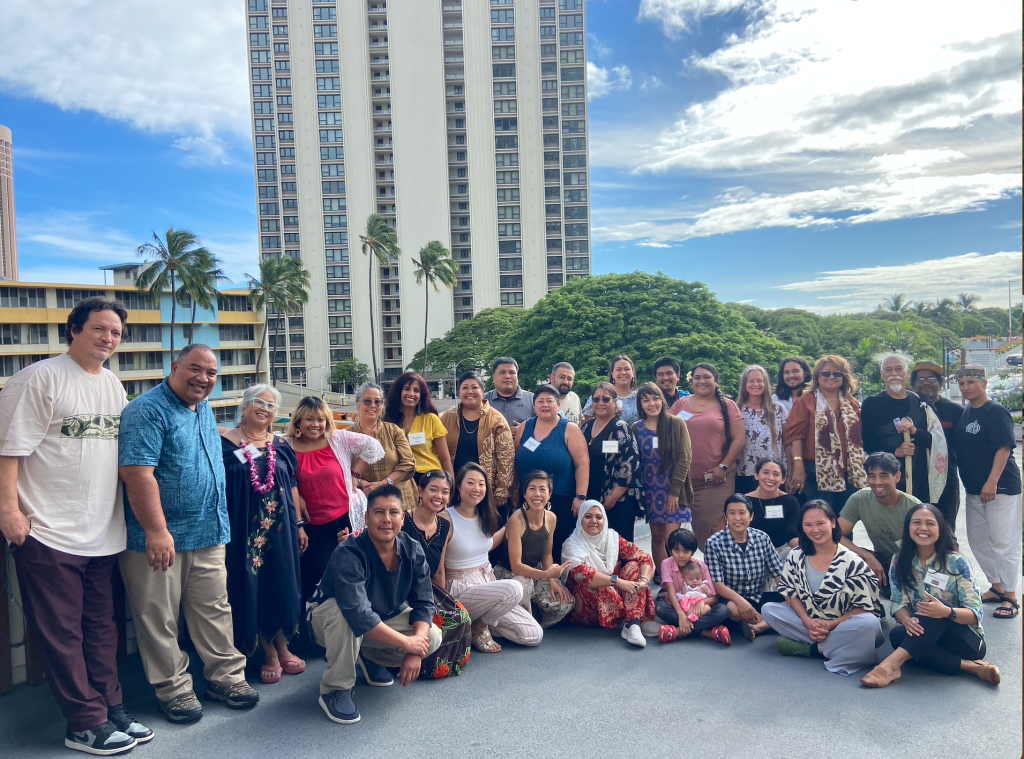Reflecting on the “Female Genital Mutilation/Cutting in California – Past, Present, and Future” Webinar

On October 11, Sahiyo in partnership with Equality Now, The U.S. End FGM/C Network, and the Greater Los Angeles FGM Taskforce held a joint webinar titled, “Female Genital Mutilation/Cutting in California – Past, Present, and Future.” The event was moderated by Sahiyo U.S. Executive Director, Mariya Taher and Shivagi Misra of Equality Now. The event brought together a panel of survivors, advocates, service providers, and community members who are already working on ending FGM/C in the state: Dr. Nina Smart and Athia Carrim of the Greater LA FGM Task Force, as well as Orchid Pusey of the San Francisco Asian Women’s Shelter. The speakers shared their histories of working in California, and in some cases globally, to raise awareness about the prevalence of FGC in the state. The conversation then turned to how the state could support advocates’ work by strengthening the current California FGC law, passed in 1996, to include components such as community education, cultural competence in care for survivors, and productive interactions with community members from practicing communities. As Shivangi Misra said during the event, “We can use the law for support, outreach, and healthcare.” The panel also highlighted the intersections of identities that survivors of FGC (for example, recognizing that an FGM/C survivor can also identify as gender-queer). This helps us recognize the need to push for a holistic approach to address survivors of FGM/C. The audience was very engaged, with many participants expressing their eagerness to dive deeper into the topic and sharing their personal experiences working with the issue in the state. We encourage you to watch the full webinar to hear more about the experiences of survivors and advocates, as well as learn what needs to be done while pushing for an updated law in California. [youtube url=”https://www.youtube.com/watch?v=HTAZ0vrd0cg”]
Walking Together: My Experience at the Annual Walk to End Female Genital Mutilation in D.C.

By Samman Masud This year, I had the wonderful opportunity to participate in the Annual Walk to End Female Genital Mutilation (FGM), held in Washington, D.C. on September 28th, 2024. The sense of community prior to the walk was palpable when I arrived at the amphitheater nestled across from the Washington Monument. I got a chance to meet many activists, survivors, advocates, and others that I work with in a virtual space, but haven’t met in person. Some participants traveled all the way from Seattle and California to walk with other community members, while others joined from the DC metro area and surrounding states. In it’s eleventh year, the Walk to End FGM welcomed participants from all walks of life. Men, women, the elderly, and even children joined their parents in uniting against a practice that affects millions of women and girls worldwide. The event piqued people’s curiosity, and many passersby stopped to ask questions about FGM/C and took interest in learning more about the prevalence of the practice in the U.S. and other parts of the world. Angela Peabody, Executive Director and cofounder of the Global Women Peace Foundation, welcomed all the participants to the event. It kicked off with the Global Woman Peace Awards ceremony, which honored activists and survivors who have made impactful contributions toward ending FGM/C. A beautiful musical performance, recognitions, and speeches followed the ceremony. I was honored to accept the Lisa C. Bruch Woman of the Year award on behalf of Amy Hill, who was being recognized for her service to survivors of FGM/C through the Voices to End FGM/C storytelling project, which she co-founded with Sahiyo’s Executive Director, Mariya Taher. I had the opportunity to work with Amy at a recent workshop in Washington D.C. in June 2024, so it was my great pleasure to receive the award and share remarks on her behalf since Amy was unable to attend the ceremony. “What started as a single digital storytelling workshop that we led together has become Voices to End FGM/C. To date, Voices has supported more than 75 survivors and advocates in connecting through the power of story and combining words and images into short videos that spotlight deeply personal and uniquely individual moments from their lives,” Amy said. The ceremony continued, with awards given to other activists, survivors, educators and ambassadors who discussed their commitment to advocate against FGM/C. It was especially heartwarming when some of the survivors and advocates proudly brought their young children with them on stage to accept the awards. I loved listening to these stories and seeing the pride they had in their work and achievements as FGM/C advocates. After the awards ceremony, we walked around the Washington Monument, chanting “No More FGM,” getting bystanders to join in on our calls for an end to this practice. The walk may have ended, but our work is far from over. I hope we can continue to mobilize communities throughout the U.S. and the international arena to highlight the urgency of ending FGM/C and push for policies that protect the rights and well-being of all women and girls.
Reflecting on the NAPIESV ARP SA Grantees Gathering in Honolulu, Hawaii

In September 2024, Sahiyo U.S. had the privilege of attending an event in Honolulu, Hawaii, hosted by the National Organization of Asians and Pacific Islanders Ending Sexual Violence (NAPIESV) for grantees who had received funding from the American Rescue Plan (ARP) to create culturally specific programming to address sexual assault in AAPINH (Asian American, Pacific Islander, and Native Hawaiian) communities. The three-day event was significant for Sahiyo, allowing the U.S. team to reflect on its Activists Retreat program, which – thanks to this funding – has now trained over 100 activists to date. During the event, the team reflected on and shared key milestones, including hiring Community Engagement Coordinator Samman Masud, hosting its first in-person Activists Retreat since the Covid-19 pandemic, and launching its first-ever retreat to include individuals from Asian, Pacific Islander, and Southwest Asian/North African (API-SWANA) regions and communities in 2024. (To hear more about attendees’ experience at past retreats, click here). Connecting with fellow organizations, each with their own story and approach, offered new perspectives and insights into how Sahiyo U.S. can better support AAPINH survivors and continue to foster meaningful change. Sahiyo U.S. is looking forward to planning our third annual Activists Retreat under this grant in February of 2025. (If you’re interested in attending, click here). A heartfelt thank you to the local organizations, Olohana Foundation and Hawaii CASA for welcoming everyone so warmly, sharing invaluable insights, and highlighting the unique issues impacting communities in Hawaii. To learn more about our Activist Retreat program, watch the video below! [youtube url=https://www.youtube.com/watch?v=l-sOB_fRe6A ]
